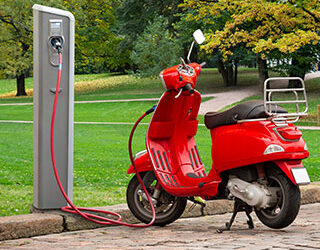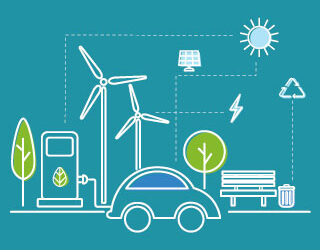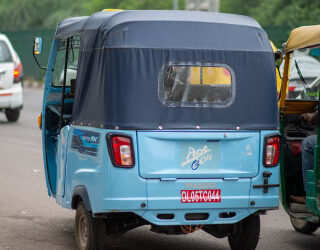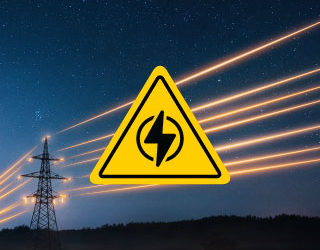Smart use of smart meters for energy conservation by the DISCOMs
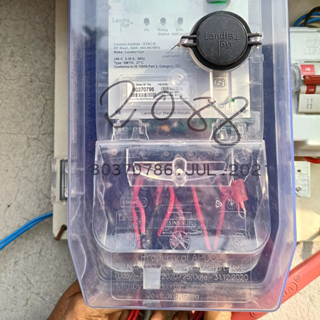
National Energy Conservation Day is observed in India every year on December 14 with the primary objective of raising awareness among the public on the need to save energy. Most of the energy usage in India is sourced from fossil fuels and it is estimated that these resources would run out of reserves within this century. In view of the depleting resources as well as spearheading climate action on greenhouse gas emission reduction, India has progressively increased its renewable energy share from a mere 10% in the last decade to more than 38% of total intalled capacity in 2021. However, alongside renewables, it is equally pivotal to mitigate the inefficient use of energy to conserve energy.
Although used interchangeably, energy conservation is different from the word, “energy efficiency” which refers to the use of less energy for the same output or higher amount of output per unit of energy. Energy conservation, on the other hand, refers to any activity that leads to the reduced use and consumption of energy.Energy efficiency is a key resource to mitigate energy loss and to achieve our Nationally Determined Contribution (NDC) goals. An impact assessment study of the national energy efficiency programmes and schemes by the Bureau of Energy Efficiency (BEE) shows that adoption of energy efficiency measures has resulted in a total energy savings of 23.73 Mtoe, which is 2.69% of the total primary energy supply of 879.23 Mtoe during 2018-19 and has reduced the energy intensity of India (at 2011-12 prices) from 65.5 toe per crore rupees in 2011-12 to 55.8 toe per crore rupees in 2017-18.
Electricity constitutes the major (around 45%) portion of the total energy usage in India. However, the electricity distribution sector loses around 22% of electricity generated annually as the Aggregate Technical and Commercial (AT&C) loss occurring due to long low voltage lines and through losses due to inefficient billing and collection. It is, therefore, imperative in the energy conservation strategy of India to instill energy efficiency measures into the portfolio of electricity distribution companies (DISCOMs) resources to facilitate optimum network operations and reduce energy wastage.
Under the Smart Meter National Programme, Energy Efficiency Services Limited (EESL) aims to replace 25 crore conventional meters with smart meters. The revamped distribution sector scheme of the Ministry of Power has an outlay of Rs. 3,03,758 cróre for several reformative measures to improve the operational efficiencies of the DISCOMs, with smart metering and associated Advanced metering infrastructure (AMI) being a primary feature. AMI is poised to offer benefits in the form of improved billing and collection efficiencies resulting in reduced AT&C losses. However, utilizing AMI only for the purpose of billing would result in a severe under-utilization of a valuable asset. The DISCOMs must leverage the value propositions of the smart meters for theft detection, network maintenance and outage management aiming to reduce the AT&C loss to the global average of 5-6%. Findings from State Energy Efficiency Index 2020 shows that only 6 states have Time of Day (TOD) tariff in place for residential consumers. The DISCOMs must effectively utilise the smart meter data to implement carefully designed Time of Use (TOU) tariff structures for different consumer segments.
Indian Prime Minister Shri. Narendra Modi called for ‘mindful and deliberate utilisation’ of energy instead of ‘mindless and wasteful consumption’ at COP 26 in Glasgow. The DISCOMs, being at direct interface with the consumers are best placed to nudge human behavior to reduce avoidable energy. They may deploy smart meter data to undertake behavioural energy efficiency programmes to check the inefficient use of energy. Ingraining energy conservation in human behavior can unlock the potential for energy transition programmes in appliances such as energy efficienct fans, star-rated air conditioners etc., similar to UJALA, which is globally the single largest national demonstrative programme on efficient energy transition. In addition to these, smart meter data may be utilized to facilitate an array of benefits for the DISCOMs in terms of load forecasting and load profiling.
In the National Energy Consevation Awards 2021 (NECA 2021) presented by BEE on December 14,2021 to several sectors for excellence in the field of energy efficiency, only one certificate of merit (COM) was conferred on Uttar Gujarat Vij Company Ltd. (UGVCL) with the 1st and 2nd prizes remaining unawarded. This speaks volume of the urgent need for the DISCOMs to leverage energy efficiency tools to attain financial resiliency and check energy wastage. In one such endeavor, AEEE is partnering with the Bihar DISCOMs to improve the financial health of the DISCOMs through “Green and Digital” intervening measures. AEEE has identified the role of smart metering technology in facilitating several initiatives to help ensure a sustainable future for the DISCOMs. AEEE will partner with smart meter data analytics agencies for various institutional capacity building activities to help DISCOMs undertake the initiatives at scale and realize its benefits for loss reduction and energy consevation.
Priyami Dutta, Senior Research Associate & Ishan Bhand, Research Consultant work in the Power Utility and Electric mobility vertical. They are currently working on promoting energy efficiency as an intervention tool for green recovery of DISCOMs.
